Celebrating an Emerging Fashion Icon
While Dissecting the Rise of African Fashion Through the Eyes of the Africa Fashion Week in Nairobi
On Saturday, my incredibly talented best friend showcased her 7-piece fashion collection at the Africa Fashion Week in Nairobi, organized by Delight Technical College, collaborating with other partners such as National Museums of Kenya and ShopZetu.
She is the founder of DnD Couture and her two-set collection explored a week in the life of a stylish Kenyan lady, from Sunday Best Ankara to Saturday Night Glamor. It also featured a unique twist to the typical Ankara designs for men.
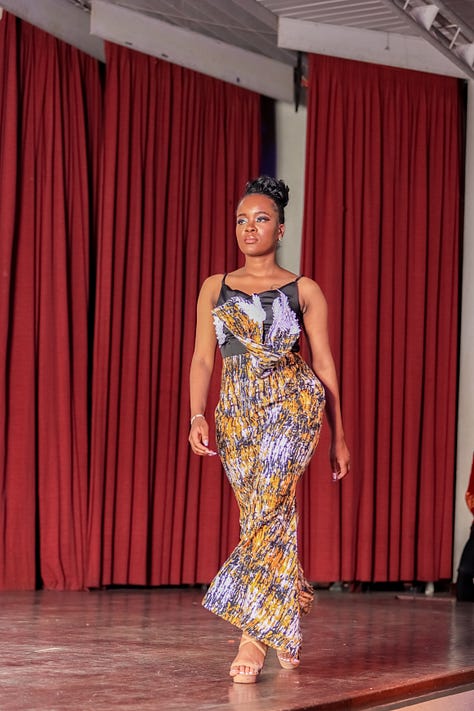
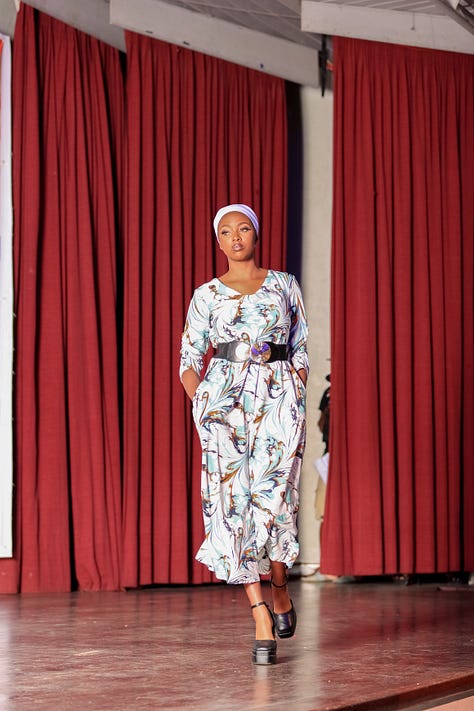
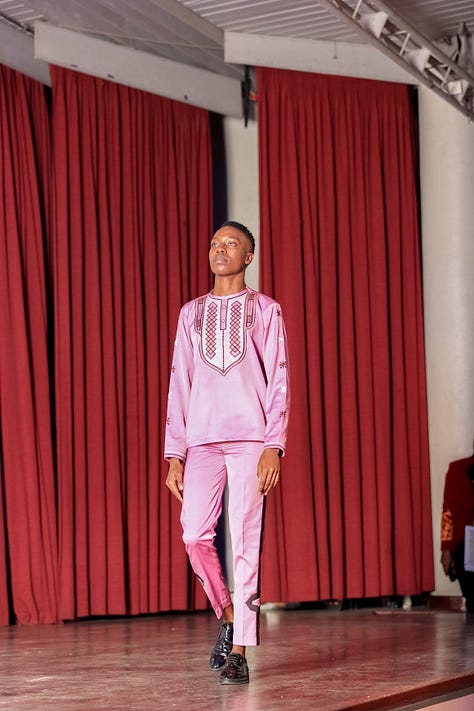
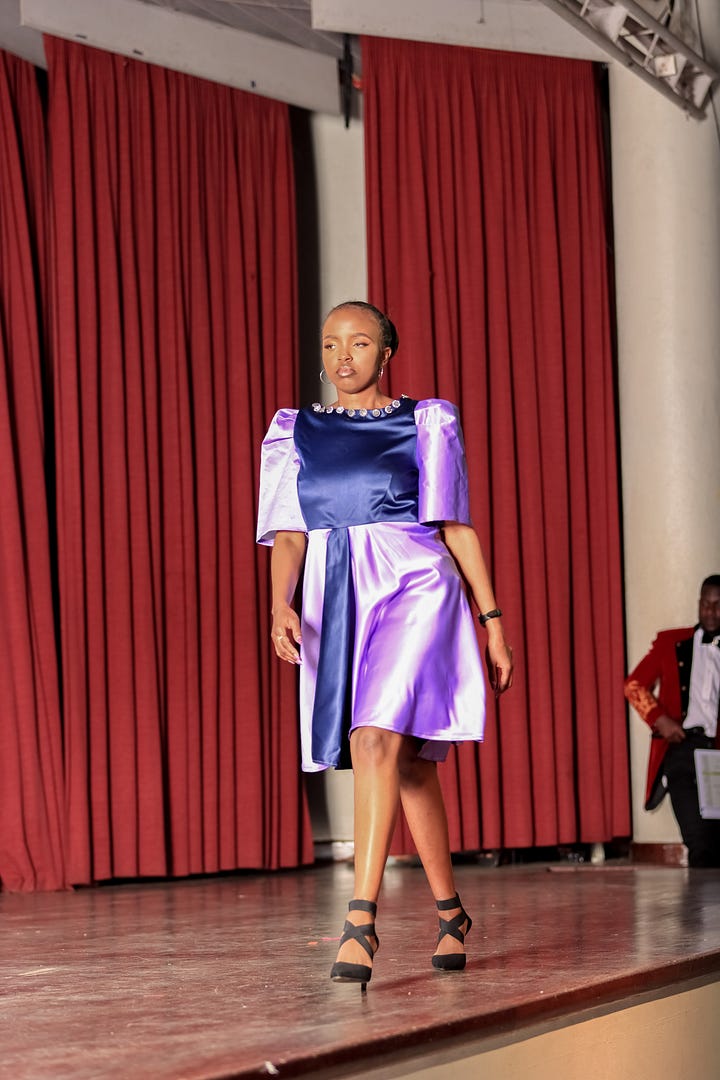

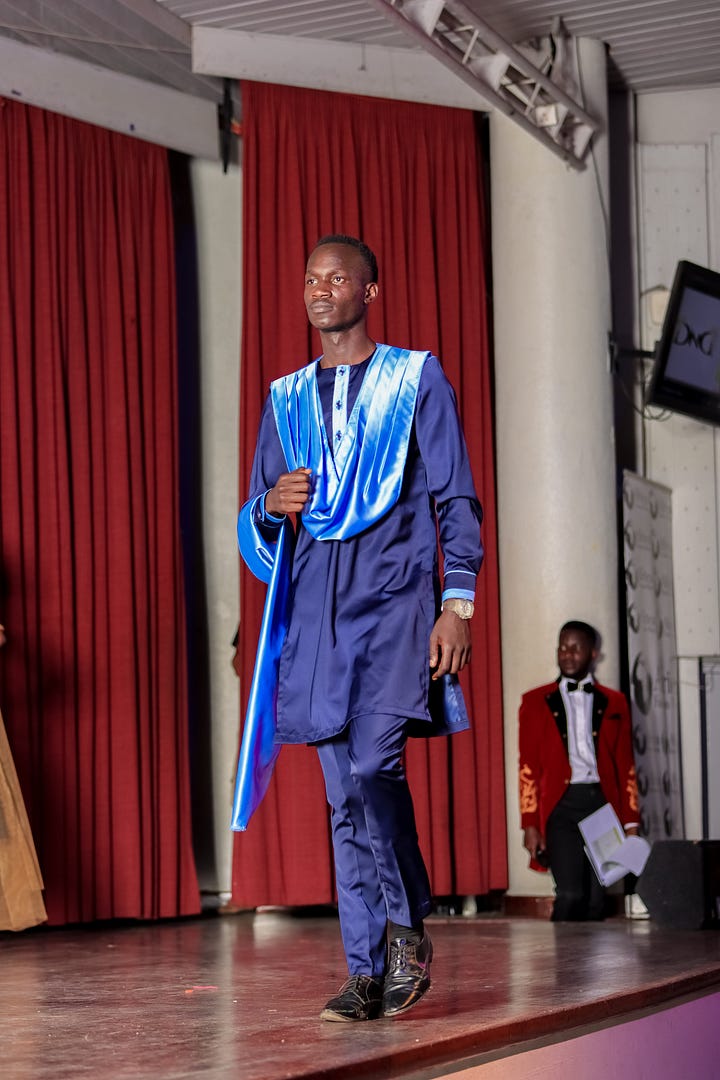
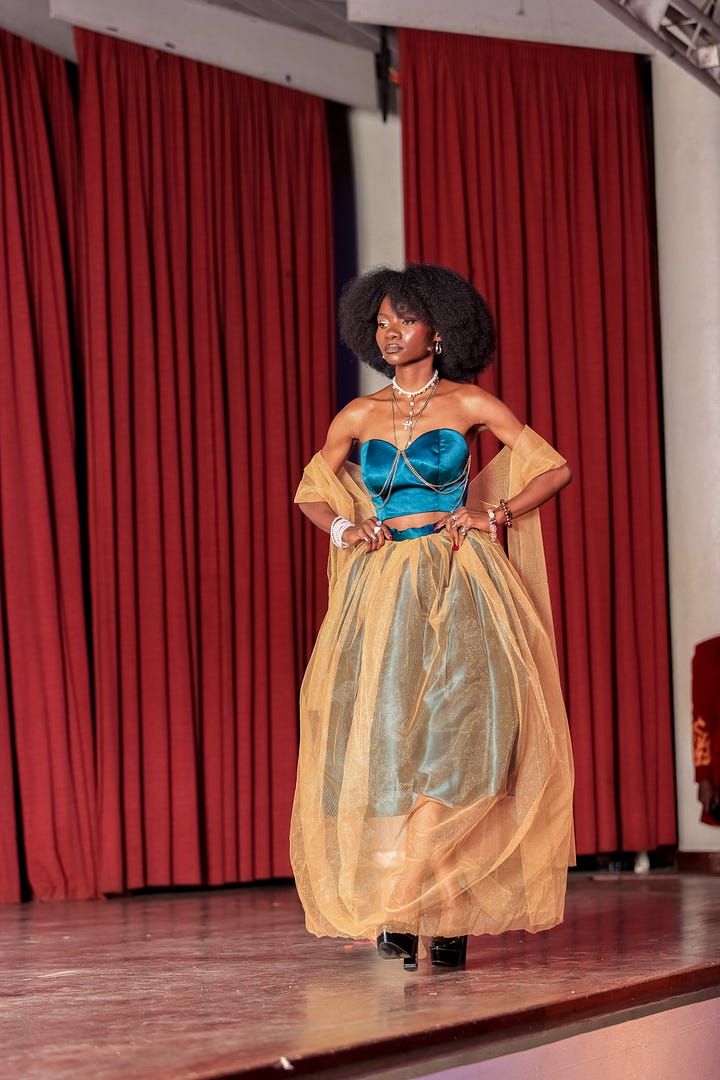
Breaking Down The Looks
Outfit 1
The Sunday Best Ankara Piece was made from Ankara fabric, also known as Kitenge or African wax print. It is a colorful cotton cloth with batik-inspired printing.
The outfit was inspired by the fact that most African ladies tend to have a staple Ankara piece in their wardrobe for Sunday or event wear.
Outfit 2
This breezy and comfortable piece is perfect for a quick trip to your favorite shopping mall or for relaxing at home after work during the week.
One can choose to accessorize with a belt or not.
Outfit 3
This is the first of two gent’s pieces. Typically, this African style for men lends itself to the Ankara fabric. She chose to give it a unique twist by accessorizing it with embroidery.
Outfit 4
An everyday effortless wear for the Kenyan lady during the week.
Outfit 5
Arguably, my favorite. On that note, what’s yours? This is Nairobi streetwear at its best. It’s perfect for weekend fun, street photography, or Friday night out.
Outfit 6
This is the second piece for gents. It was inspired by the Nigerian Agbada, a traditional Nigerian robe that comes in many designs and styles.
Outfit 7
The showstopper outfit is ideal for a high-end glamor event on a Saturday. It makes you want to stop and look again, doesn’t it?
I could gush all day about this collection, and yes, this was mainly supposed to be a hype and celebratory post, but watching her design, tailor, and participate in the event revealed a lot about the African fashion industry.
In a conversation with her after the event, she highlighted a chat with a fellow designer who’d been in the industry for 32 years. The main takeaway was that the African fashion industry is challenging and requires a lot of patience to build a name for yourself.
That echoes the available data—although the global apparel market is worth over $1.7 trillion, Africa only has a 1.2% slice.
Another designer noted that the industry has grown more than ever before, but Kenya and African countries, in general, do not have big runways/fashion events, which makes it challenging to have global relevance.
Again, true. Paris, New York, Milan, and London are considered the world’s fashion capitals. Tokyo has tried to break into that list but hasn’t quite achieved the notoriety of the other 4 cities.
Fashion weeks in the four cities are global events that attract the who’s who of the world and give birth to the most innovative designs.
Does that mean fashion weeks in Lagos, Nairobi, Accra, and Jo’burg do not produce equally innovative designs? No. However, for a long time, African countries did not invest in the fashion industry.
As such, many talented African designers never got a chance to showcase their innovation to the world.
This is not just on the governments. Traditionally, many Africans were not open to new styles and radical designs.
That mentality is changing across various African countries, especially with the advent of the African Continental Free Trade Area (AfCFTA).
That’s why the African Export-Import Bank (Afreximbank), a pan-African multilateral financial institution mandated to finance and promote intra- and extra-African trade, launched the Creative Africa Nexus (CANEX) program.
CANEX Program
The program supports Africa’s creative and cultural industries through funding, networking opportunities, market access, and export-grade production.
The primary creative industries the program focuses on include:
Film and Television
Fashion
Music
Infrastructure (for example, building a cinema or music studio)
Franchising
Publishing/Creative Writing
As this is about fashion, the three CANEX initiatives relevant to fashion are The Deal Room, CANEX Weekend, and CANEX Presents Africa @ Portugal Fashion.
The Deal Room
It gives entrepreneurs an opportunity to present bankable projects/ opportunities in the Creative and Cultural Industries to financiers and investors.
The 2024 edition took place between October 17th and 18th, 2024, and the deadline for sending proposals was October 1st. Investors committed over US $540 million in deals. Amazing, huh?
The requirements for those in the fashion industry included:
Africa-based entities, public or private, whose principal activities are in one or all of fashion/textiles production, design, and distribution.
Eligible corporates must have an established track record (minimum of three years and US$1.5m in revenues at the time of application) with a distribution history across intra-and/or extra-African territories;
Total purchase orders at a minimum of US$500,000 at the time of application.
—canex.africa website
To participate in the deal room next year, do the following to access timely information on dates and deadlines.
Keep checking the canex.africa website
Email info@creativeafricanexus.com, Copy to: Name: Khanyi Mashimbye
Email: kmashimbye@afreximbank.com
CANEX WKND
The 2024 CANEX Weekend was held in Algiers, Algeria, between October 16th and 19th. The event occurs every year in varying cities across Africa.
The event aims to showcase African creativity and allow creatives to network and do business.
The highlights include:
A fashion show
Market and exhibition
A CANEX music factory, which is a live collaborative music creation session
Art exhibition
CANEX Book Factory Prize for Publishing in Africa
Keep checking the website to find out when registration for CANEX WKND 2025 will open.
CANEX Presents Africa @ Portugal Fashion
This is a collaboration between CANEX and Portugal’s National Association of Young Entrepreneurs (ANJE). The inaugural edition took place in 2021, and the 2024 edition occurred between the 12th and 16th March 2024 in Porto, Portugal.
The initiative aims to support entry to mid-level fashion designers through mentorship, networking, market access, and sales and distribution. Thus far, over 70 fashion designers from over 25 African countries and the Caribbean have participated.
Follow CANEX on Instagram @creativeafricanexus for timely information on the call for applications for the 2025 edition.
Take Away
Gabrielle Chanel, the founder of Coco Chanel, started with a small millinery shop ( a shop that sells women’s hats and headwear) in 1910. In 1913, she relocated to Normandy and launched a ready-to-wear line for active ladies in Normandy.
Today, Coco Chanel is no longer a small shop in Normandy but a global household name. More than that, she and other designers of her time pioneered the French fashion industry, which now has a turnover of 154 billion Euros and contributes to more than 1 million French jobs.
These are more jobs than the automobile and aeronautical industries combined create.
So, there is hope for the nascent African fashion industry. DnD Couture and all the African designers pushing the boundaries are the pioneers of an African fashion scene that will leave its mark.
It is also inspiring to see an African institution like Afreximbank recognize the importance of the African creative industry and commit billions to it. In October, the bank's chairman announced that they would increase funding to the CANEX program from US $1 billion to $2 billion.
A round of applause for Afreximbank 👏🏽👏🏽 and hopefully, my best friend will be among those who will benefit from that investment.
That said, here is the designer herself, wearing her own design. She is exactly who she thinks she is 🙇🏽♀️🙇🏽♀️

P.S To reach out to DnD for any business, use social media
IG: @_dnd.couture
Facebook: DnD Couture
Thank you for reading Africa: Not an Afterthought. The newsletter leads the conversation on how Africa can leverage technology, trade (AfCFTA), regional integration, and Pan-Africanism to build a continent that is no longer an afterthought.
If you enjoyed this, please share it with your friends in the fashion industry.
Thank you. Merci. Asante.






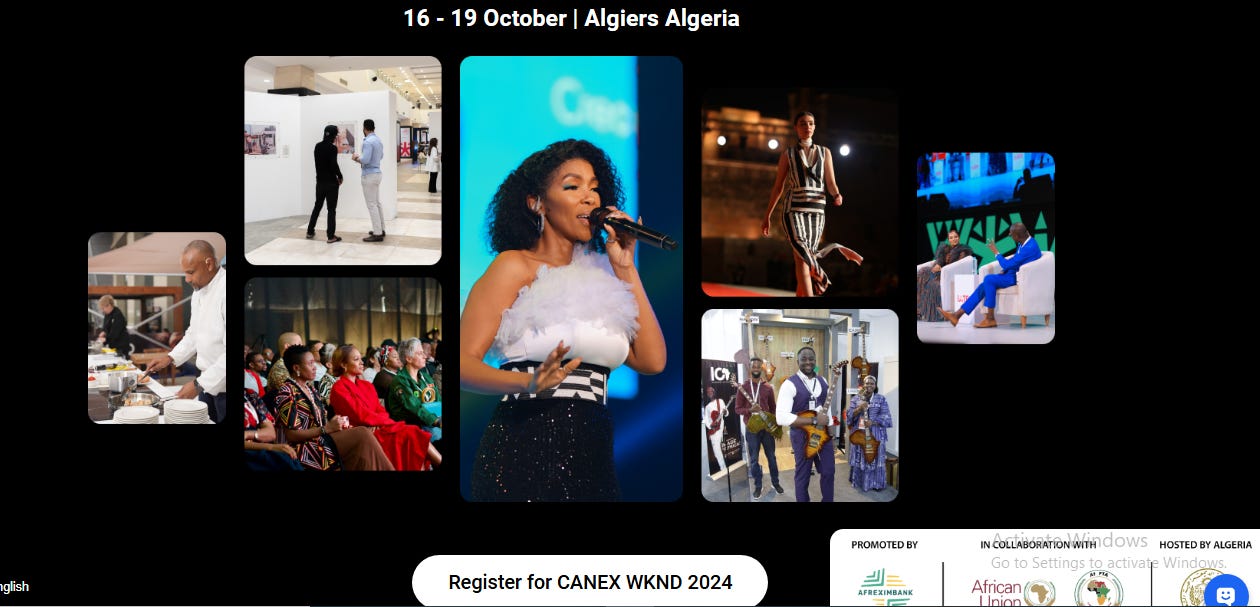
Beyond grateful be to featured here😁 and honored to share my passion for fashion. #fashionwithoutborders